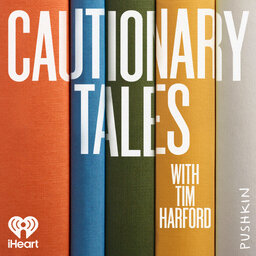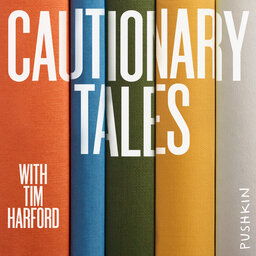The Edinburgh Body Snatchers: Murder at Halloween
In 1827, Edinburgh, Scotland was a world centre for anatomical study, but there was a shortage of cadavers for medical students to dissect. Two men, William Burke and William Hare, spotted a grim business opportunity. They began sourcing bodies - by any means possible...
In this episode of Cautionary Tales - recorded live at the Podcast Show in London - true crime meets economics. Tim Harford's hair-raising story explores a question: what makes some markets acceptable, and others repugnant?
For a full list of sources, see the show notes at timharford.com
In 1 playlist(s)
Cautionary Tales with Tim Harford
We tell our children unsettling fairy tales to teach them valuable life lessons, but these Cautionar…Social links
Follow podcast
Recent clips

Flight of the Fantasist: The Race Around the World - Part 2
41:21

The Philosopher and the Handyman: The Race Around the World - Part 1
39:28

Presenting... American Criminal: The Great McDonald's Monopoly Heist
40:42
 Cautionary Tales with Tim Harford
Cautionary Tales with Tim Harford